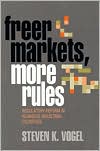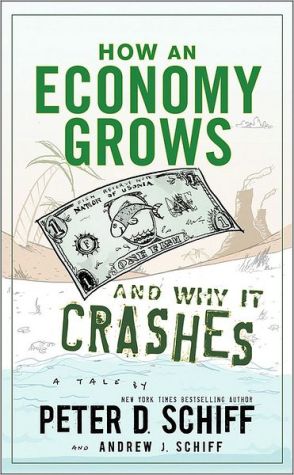Freer Markets, More Rules: Regulatory Reform in Advanced Industrial Countries
Over the past fifteen years, the United States, Western Europe, and Japan have transformed the relationship between governments and corporations. The changes are complex and the terms used to describe them often obscure the reality. In Freer Markets, More Rules, Steven K. Vogel dispenses with euphemisms and makes sense of this recent transformation. In defiance of conventional wisdom, Vogel contends that the deregulation revolution of the 1980s and 1990s never happened. The advanced...
Search in google:
Over the past fifteen years, the United States, Western Europe, and Japan have transformed the relationship between governments and corporations. The changes are complex and the terms used to describe them often obscure the reality. In Freer Markets, More Rules, Steven K. Vogel dispenses with euphemisms and makes sense of this recent transformation. In defiance of conventional wisdom, Vogel contends that the deregulation revolution of the 1980s and 1990s never happened. The advanced industrial countries moved toward liberalization or freer markets at the same time that they imposed reregulation or more rules. Moreover, the countries involved did not converge in regulatory practice but combined liberalization and reregulation in markedly different ways. The state itself, far more than private interest groups, drove the process of regulatory reform. Thus, the story of deregulation is one rich in paradox: a movement aimed at reducing regulation increased it; a movement propelled by global forces reinforced national differences; and a movement that purported to reduce state power was led by the state itself. Vogel's astute and far-reaching analysis compares deregulation in Britain and Japan, with special attention to the telecommunication and financial services industries. He also considers such important sectors as broadcasting, transportation, and utilities in the United States, France, and Germany.
AcknowledgmentsIntroduction: The Deregulation Revolution That Wasn't11Understanding Regulatory Reform92Why Change the Rules?253The United Kingdom and Japan: Two Paths to Regulatory Reform434Telecommunications: The Creation of Competition655Financial Services: The Big Bang and the Proliferation of Rules936Regulatory Reform British Style: The Separation of Regulatory Powers1187Telecommunications: Reregulation with a Vengeance1378Financial Services: The Ministry of Finance and the Perpetual Bargain1679Regulatory Reform Japanese Style: The Strategy Behind Slowness19610Other Countries: The Many Roads to Reregulation21711The Irony of State-Led Deregulation256References271Index288
\ From the Publisher"The best published account so far of the reforms of the stock markets in the United Kingdom."-Sir Nicholas Goodison, Deputy Chairman, Lloyds TSB Group, plc.\ "Vogel writes with extraordinary clarity about a very complex subject. His discussion of deregulation in Japan not only gives the reader a clear understanding of the distinct issues of market liberalization and regulatory reform as they have been pursued in Japan, but also offers a nuanced analysis of the relationship between state and market in contemporary Japan."-Gerald L. Curtis, Columbia University\ "A simple suggestion: anyone who cares to comment on Japan's commitment to deregulation must first read this book. As Steven Vogel explains, . . . deregulation comes in many guises."-Japan Times\ "There is growing acceptance of the claim that international market forces have been compelling reluctant governments to deregulate, liberalize, and privatize ever more segments of their domestic economies. . . . Steven Vogel's refreshing book presents a compelling political challenge to such oversimplifications."-Comparative Political Studies\ "This is undoubtedly the finest comparative study we have of the regulatory reform movement that has spread across the advanced industrial countries over the last decade or so."-Political Studies\ "This masterly work . . . elevates the reader to a higher stage where he/she can start asking cutting-edge questions about comparative political economy. Rarely does a book leave the reviewer grateful for the opportunity to have looked into an issue so carefully. I welcome this exception."-Hiwatari Nobuhiro, University of Tokyo, Social Science Japan Journal. 1999.\ \ \








